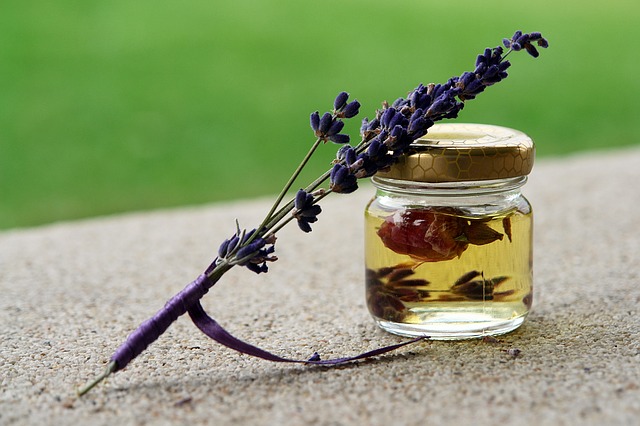Aromatherapy is more than just the scenting of our homes and person. Nature has provided us with an amazingly powerful and diverse range of plants.
Aromatherapy is the name given to the therapeutic application of the volatile aromatic compounds extracted from these plants in the form of an oil which can be inhaled or applied to the skin to promote a healing response from the body.
The aromatic compounds of a plant are what gives the plant it’s smell and are extracted from flowers, bark, stems, leaves, roots or other parts of a plant to enhance mental and physical well-being.
They can be used in both in a preventative as well as an active method during acute or chronic illnesses.
A basic principle of Aromatherapy is to strengthen the self-healing processes of the body by the indirect stimulation of the immune system. It is a natural non-invasive modality which is thousands of years old and designed to affect the whole person not just a symptoms or disease.
Aromatherapy is said to relax, balance, rejuvenate, restore, or enhance the body, mind and spirit. It does this through four modes of action which relate to the interaction of essential oils with the human body. These are:
- Pharmacological: these are when chemical changes take place as a result of essential oils entering the bloodstream and reacting with hormones, enzymes and other components of blood.
- Physiological: this is when an essential oil affects the systems of the body. Due to their chemical structure essential oils can penetrate the cell wall and act as a transport system to deliver oxygen and nutrients into the cell and thus optimize cell performance and thus provide support to the various systems of the body under challenge. Eg. Immune System, Nervous System etc.
- Psychological: this is the individual response to the inhaled aroma of an essential oil. Here the olfactory system in conjunction with the limbic system create an association with an aroma which could be negative or positive based on the memory associated with the aroma.
- Holistic: this is the human body’s total response to an essential oil and can include all of the above. For example lavender oil can act on the pharmacological, physiological and psychological to bring balance to the body.
There are three ways essential oils are introduced to the body, via diffusion into the air, direct inhalation or topically onto the skin.
It is believed that direct inhalation of an essential oil directly stimulates the brain via smell receptors in our nose.
When these receptors are activated a signal is sent to the limbic or emotional centre of our brain, which causes chemicals to be released causing a change in the physical and mental state of the person.
A nice aroma such as a rose or lavender will cause the person to feel relaxed or calm and may evoke pleasant memories. An unpleasant smell will cause tension and distress such as a smoke or food that is past its use by date warning us of the danger associated with it.
When diffused into the air essential oils deodorize and purify the air and when inhaled are absorbed into the blood stream via the lungs and into the brain via the nose promoting relaxation, and supporting immunity.
When essential oils are applied topically they are absorbed into the skin where they travel into the bloodstream and promote local and systemic benefits.
Essential oils are microscopic fat soluble molecules, this makes it easier for them to pass into our cells which have a lipid bilayer membrane. As they pass into the cell they carry nutrients along with them to nourish the cell.
The French chemist Rene-Maurice Gattefosse showed it was possible for essential oils to penetrate the skin and reach the organs via the blood and lymph system of the body.
The most common way to apply essential oils is to incorporate them into a bath, skincare products or massage them into the skin. In this way we can target local areas for specific actions or in a bath for systemic benefits.
Used daily Aromatherapy can have a preventative action for many common ailments such as stress, colds and viruses, digestive upsets, headaches and has many benefits for maintaining good skin health when incorporated into a beauty regime.
It is best to work with a practitioner when choosing essential oils for specific ailments especially if they are chronic in nature as a consultation will allow the practitioner to assess the health status of a client via discussion, observation, and a physical examination if necessary to determine if the ailment is acute or chronic, local or systemic, due to internal or external causes or both.
The underlying cause of illness can lie in either the physiological, anatomical or psychological domain and when one area is affected this can be reflected in the other areas as well, for example stress could be an external factor which causes distress in all the three areas mentioned before.
As the trend towards alternative therapies and a holistic view of health continues people are embracing the therapeutic properties of essential oils to promote relaxation, balance, rejuvenate, and stimulate health and vitality in their daily lives.
Essential oils have a low potential to be physically habit forming as they are either expelled or metabolised by the body within 3-6 hours in a healthy individual or 12-14 hours in an unhealthy person.
This is because they are not synthetic products and thus do not accumulate in the body but are excreted by the body. A healthy and natural gift of nature for our well being.
You can find much more information on living a holistic lifestyle in these free magazines and on our YouTube channel.
Elizabeth Mulvey – Aromatherapist






